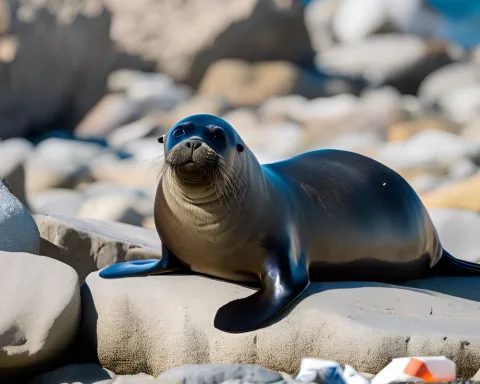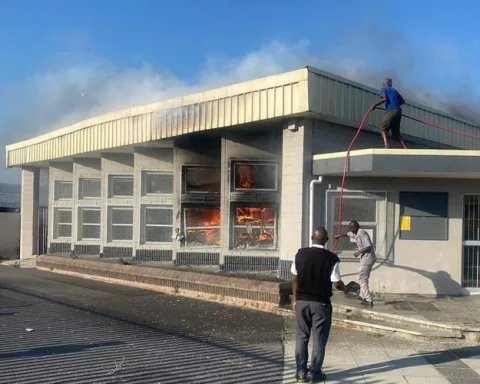The Mdzananda Animal Clinic in Khayelitsha is determined to vaccinate 250 dogs against rabies within 24 hours as World Rabies Day approaches. The clinic has detected rabies-infected dogs in the area and is appealing to the public to sponsor a dog for R50 to cover expenses for needles, syringes, and gloves. The initiative exemplifies the power of community action, collaboration among local organizations, and public support in curbing the spread of infectious diseases and preserving the health and well-being of both animals and humans in the community.
Tackling Rabies in Khayelitsha
As World Rabies Day approaches on September 28, the Mdzananda Animal Clinic in Khayelitsha is determined to vaccinate 250 dogs within 24 hours. The motivation behind this endeavor stems from the alarming detection of rabies-infected dogs in the region during 2021 and 2022, which were the first cases identified in the Western Cape since 1994. The fatal virus constitutes a grave risk to both animals and humans, rendering this vaccination campaign all the more vital.
The highly lethal rabies virus spreads via the saliva of an infected creature. The most common mode of transmission is through a bite, but it can also occur if saliva comes into contact with lips, eyes, or open wounds. Both animals and humans are susceptible to the virus, and 99% of human cases result from dog bites. Once symptoms emerge, the disease is almost always fatal. Moreover, the virus inflicts immense pain and agony on affected animals before ultimately claiming their lives.
In a bid to confront this threat, the Mdzananda Animal Clinic is organizing a large-scale vaccination event in Khayelitsha township. The clinic will offer free vaccinations to local pets but is appealing to the public to help by sponsoring a dog for R50. This amount will cover the expenses for needles, syringes, and gloves. The state vet is generously sponsoring the vaccinations themselves. Additionally, each pet will be immunized against other deadly illnesses, such as parvovirus, distemper, parainfluenza, and adenovirus.
The Importance of Vaccination and Public Support
Heidi May, the clinic’s General Manager, stresses the significance of immunizing dogs against rabies, particularly given the recent cases in Khayelitsha. She outlines the symptoms of rabies in animals, which include fever, swallowing difficulty, excessive drooling, unsteady movement, seizures, and aggression. Regrettably, no specific treatment for rabies exists, and the disease is almost always fatal once symptoms manifest. However, vaccination can prevent infection, rendering the immunization drive a crucial step in preserving the lives of both animals and humans in the community.
The Mdzananda Animal Clinic’s initiative exemplifies the crucial role that local organizations can play in curbing the spread of infectious diseases. To support their efforts, donations can be made to the clinic’s bank account, with the reference “Rabies+YourName.” Alternatively, supporters can visit Mdzanda’s website to contribute. By sponsoring a dog’s vaccination, individuals can assist in shielding the Khayelitsha community from the devastating effects of rabies.
A Testament to Community Action and Collaboration
Beyond being a simple vaccination campaign, the World Rabies Day event in Khayelitsha demonstrates the power of community action, collaboration among local organizations, and public support in addressing public health crises. In light of the recent rabies cases, the Mdzananda Animal Clinic is leading the charge to ensure that the community’s pets are protected against this lethal virus, helping to avert both animal suffering and potential human fatalities. Through their efforts, they also raise awareness about the value of regular pet vaccinations, emphasizing their role in maintaining the overall health and well-being of both animals and their human caretakers.
As World Rabies Day nears, let us reflect on the importance of this yearly event and the work of organizations like the Mdzananda Animal Clinic in stemming the tide of rabies. By immunizing dogs, we not only shield our beloved pets from a painful and untimely end but also protect the broader community by preventing the spread of this deadly virus. In doing so, we are reminded of the essential role that each of us can play in contributing to the health and well-being of the animals and communities around us.
1. What is World Rabies Day?
World Rabies Day is an annual event held on September 28th to raise awareness about the importance of rabies prevention and control.
2. What is the Mdzananda Animal Clinic?
The Mdzananda Animal Clinic is an animal hospital in Khayelitsha, a township in Cape Town, South Africa. They provide veterinary care and support to animals in need, including vaccinations, sterilizations, and emergency treatment.
3. Why is the Mdzananda Animal Clinic organizing a vaccination event?
The Mdzananda Animal Clinic is organizing a vaccination event to immunize 250 dogs against rabies within 24 hours as a response to recent rabies cases detected in the Khayelitsha region.
4. How does rabies spread?
The rabies virus spreads through the saliva of an infected creature, usually through a bite. It can also spread if saliva comes into contact with lips, eyes, or open wounds.
5. What are the symptoms of rabies in animals?
The symptoms of rabies in animals include fever, swallowing difficulty, excessive drooling, unsteady movement, seizures, and aggression.
6. Is there a treatment for rabies?
There is no specific treatment for rabies, and the disease is almost always fatal once symptoms manifest. However, vaccination can prevent infection.
7. How can I support the Mdzananda Animal Clinic’s vaccination event?
You can support the Mdzananda Animal Clinic’s vaccination event by sponsoring a dog for R50 to cover expenses for needles, syringes, and gloves or by making a donation to the clinic’s bank account with the reference “Rabies+YourName.”
8. What is the significance of the Mdzananda Animal Clinic’s initiative?
The Mdzananda Animal Clinic’s initiative demonstrates the crucial role that local organizations can play in curbing the spread of infectious diseases. The campaign also highlights the importance of vaccination and public support in preserving the lives of both animals and humans in the community.












